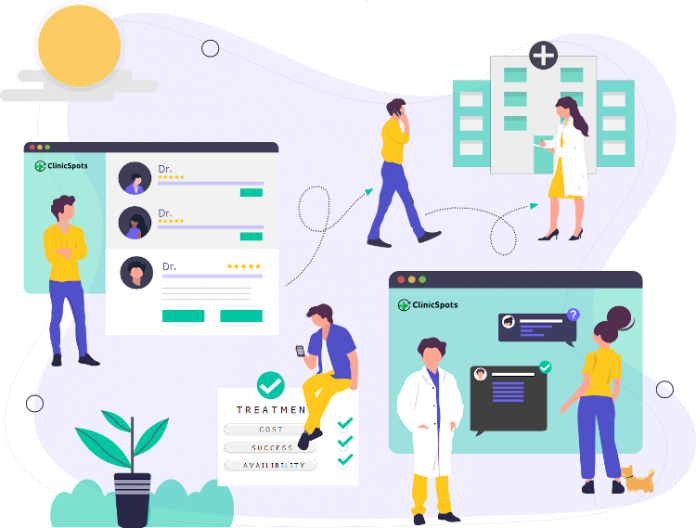Mumbai, Maharashtra, India, 11th October 2019: Artificial Intelligence (AI) being perceived as a key for transformation of technology, even smaller companies are seen implementing machine learning within their products. ClinicSpots is one such Mumbai based mid-sized healthcare startup to have introduced an innovative medical Q & A platform that makes use of NLP. The system tries to understand any patient query and displays the result in 3 forms: A direct answer, list of similar links related to the topic, other similar questions with answered.

Founder and CEO of ClinicSpots, Mr. Pankaj Srivastava says, “For ClinicSpots it is crucial to maintain quality of content while expanding its user base. With hundreds of medical queries being posted each day on our portal, it become essential to automate this process. Hence we have introduced NLP to handle the patient queries better.” The questions are categorised with the help of supervised classification. Spam filter of emails is one example of how supervised classification works. The incoming emails are automatically categorised as spam based on its content.
Based on supervised systems Clinic Spots-is able to perform language detection, understand intent and conduct sentiment analysis. Clinic Spots responds to patient queries related to any and every medical segment like IVF, Cancer, Cosmetology and so on. The responses could also contain information on the available treatment options, cost estimates, treatment locations and available medical expertise pan India. There is categorisation done through NLP and the relevant questions are then brought forward to the concerned practitioners and specialists based on their fields of specialisation and left for them to answer. Auto grammar check, similar question rendering, duplicate question detection are others areas where ClinicSpots is tapping this technology for maintaining it’s quality check list.
NLP is a specialised branch of AI that focuses on the interpretation & manipulation of generated spoken or written data. Natural language Processing helps translate human text or speech in machine readable data which can further be fed to systems and used to train models with data sets.
With the way digitisation is changing how we process and analyse information, technologies like machine learning, AI, NLP are gaining momentum. From speaking virtual assistant devices like Amazon’s Echo to driver-less cars, that were once a part of fiction movies have today become a part of reality. This emerging technology has created a remarkable buzz among AI enthusiasts in recent times.
India is not far behind in adopting this technology. Having a rich legacy of producing great scientists, mathematicians, physicians and programmers, India, thus, has a pool of talent having these right skill sets in order to have this technology grow by leaps and bounds. As per recent statistics, India has a workforce of about 40,000 AI professionals. Almost 57% of AI professionals in India have a work experience of less than 5 years. This experience may not be purely related to AI but the professionals who have transitioned to AI over the period of time. Around 3,500 freshers were added to the AI workforce in India in 2018.
With machine learning being relatively new emerging technology, even mid-sized companies are fast catching up with tech giants. Moreover, healthcare is the top sector for the use of AI applications in India after agriculture, followed by education industry. Recent market researches show that top AI applications in India are automation of business processes, chatbots, NLP & image recognition.
As Healthcare is emerging as a prominent area for developing AI applications, it will however not eradicate the need to consult physicians or replace them in future, it would rather assist them to develop a deeper understanding of ailments, make better clinical decisions and analyse clinical data in shortest possible time.
As per research, AI in India is currently estimated to be $230 million annual in revenue. AI has the potential to add 1 trillion to India’s economy by 2035. With this view the Govt is also doubling up spends in AI, ML research. The NITI Aayog mandated to establish the National Program on AI, with a view to guide the research and development in new emerging technologies and to take it forward. This technology is unarguably creating the ripple effect in shaping India’s digitisation.






